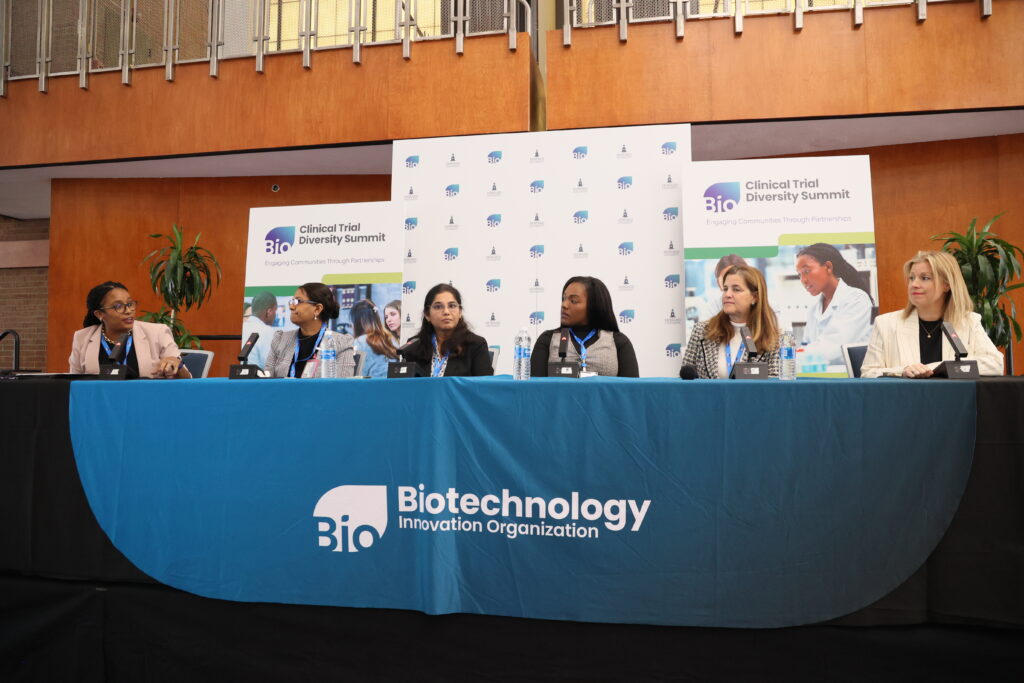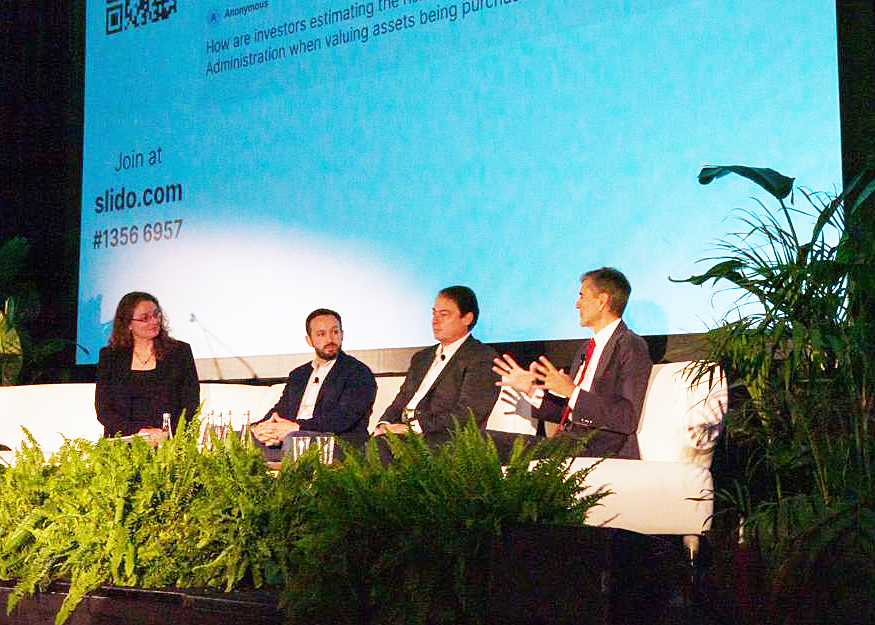On November 19, the Biotechnology Innovation Organization (BIO) Clinical Trial Diversity Summit brought together a dynamic mix of researchers, industry leaders, policymakers, and community advocates at Howard University in Washington, D.C. Organized in collaboration with Howard University and the Diversity Convergence Project, the summit addressed one of the most pressing issues in clinical research: the lack of diversity and inclusion in clinical trials.
Through keynote addresses, panel discussions, and roundtable dialogues, participants explored actionable solutions to create a more equitable research landscape. Below are highlights from the day.
A new center to combat health disparities
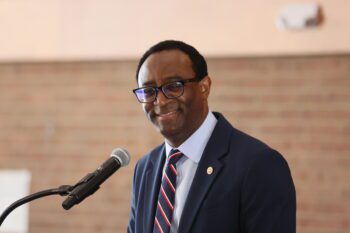
Howard University President Ben Vinson III, Ph.D., opened the summit with remarks underscoring Howard’s commitment to addressing health disparities. Central to this mission is the announcement of the National Research Center for Health Disparities (NRCHD), a 200,000-square-foot facility dedicated to advancing research, policy, and talent development to improve health outcomes for underserved populations.
“This center can have a significant influence on the direction of biological research,” said Dr. Vinson. Strategically located in the nation’s capital, the NRCHD integrates community voices with cutting-edge research, focusing on five key disease areas that disproportionately impact high-risk populations, including diabetes, sickle cell disease, cancer, and cardiovascular conditions.
Dr. Vinson also emphasized the need to rebuild trust with marginalized communities: “Too often, these patients have been failed by the institutions established to safeguard them. We want today’s dialogue and our new NRCHD to be part of reversing this history.”
Martin Mendoza, Ph.D. on the case for diversity
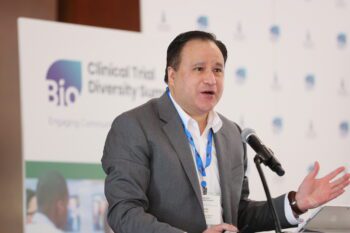
Martin Mendoza, Ph.D., Chief Health Equity Officer at the Centers for Medicare and Medicaid Services (CMS), delivered the keynote, highlighting significant disparities in clinical trial representation.
While minority groups comprise nearly 38% of the U.S. population, they represent less than 10% of clinical trial participants. “The lack of representation in clinical research is not only a moral issue but also a scientific concern. When minority populations do not participate in studies, the results may not adequately reflect the full spectrum of affected individuals, which can result in treatments that are ineffective or even harmful,” Dr. Mendoza noted.
Dr. Mendoza also discussed regulatory advancements, including the Food and Drug Administration’s diversity action plans requiring Phase III trials to include populations representative of those most affected by specific diseases. Programs like the NIH’s All of Us Research Program, which has already enrolled over 846,000 participants with a focus on underrepresented groups, were presented as models for future efforts.
Community engagement and building trust beyond trials
A recurring theme was the necessity of meaningful, long-term engagement with communities. Michael Crawford, Assistant Vice President for Strategy and Innovation at Howard University, emphasized that successful partnerships require empathy and active listening.
“You have to listen—not in a way that is transactional, but you have to be intentional and active about how you listen to the community’s needs, desires, and wants, and about what participation should look like,” Crawford explained.
Howard University’s Community Advisory Boards (CABs) were presented as critical tools for fostering inclusive engagement. By providing platforms for community members to share their priorities, these boards enable researchers to design culturally relevant and accessible clinical trials that align with local needs and meet high technical standards. The summit also addressed the impact of social determinants of health—such as income, education, and housing—on access to clinical trials. Crawford stressed the importance of tailored outreach strategies to address these challenges and ensure trials are responsive to underserved populations.
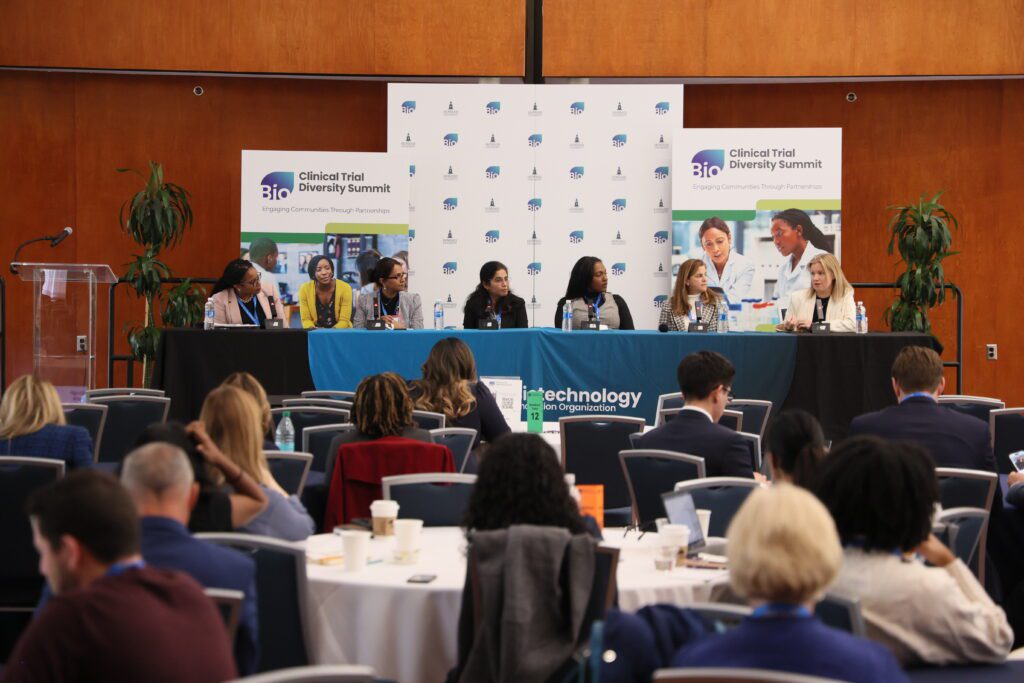
The Diversity Convergence Project: scaling collaborative solutions
Led by organizations such as the Milken Institute’s FasterCures and the Clinical Trials Transformation Initiative, The Diversity Convergence Project engages 200–300 stakeholders in creating actionable frameworks for equity in research. Through workshops, virtual meetings, and in-person events, the project developed a National Action Plan to establish measurable diversity goals, allocate funding for inclusive trials, and build sustainable community partnerships.
“Our next steps are to train and bring organizations into a coalition, commit to taking actions, and assess projects over time,” said Carolyn Shore, Ph.D., Director of the Forum on Drug Discovery, Development, and Translation at the National Academies of Sciences, Engineering, and Medicine. “The goal is to allocate funding resources for clinical trials that increase participant diversity and to define ways to empower communities over their clinical decisions.”
Building lasting relationships
The panel “Community Engagement: Building Lasting Relationships” highlighted the importance of sustainable, trust-based collaborations with community organizations to enhance clinical trial diversity. Panelists emphasized moving beyond transactional relationships to foster equitable, long-term partnerships addressing systemic barriers. Strategies like partnering with churches and nonprofits to deliver educational outreach and build trust within underserved communities were presented as effective solutions.
The session concluded with a call to prioritize equity, respect, and cultural understanding to ensure that clinical trials are accessible, inclusive, and reflective of diverse populations.
Designing inclusive trials
The panel “Increasing Access Through Intentional Trial Designs” explored barriers preventing underserved populations from participating in clinical trials, including restrictive eligibility criteria, financial burdens, and the geographic concentration of research sites in urban areas. Speakers advocated for flexible trial protocols that remove unnecessary exclusions and leverage decentralized models and remote consent processes to reduce logistical challenges.
By intentionally addressing these barriers, panelists underscored the need to design clinical trials that are both scientifically rigorous and representative of real-world diversity, ensuring broader access and greater impact.
A shared vision for the future
As the summit concluded, the message was clear: achieving diversity in clinical trials is both a moral imperative and a scientific necessity. By fostering trust, innovating trial designs, and building collaborative networks, the industry can ensure that medical advancements benefit all populations equitably. The work is ongoing, but the summit reinforced a shared vision: one where every community has a voice in shaping research and health outcomes.


